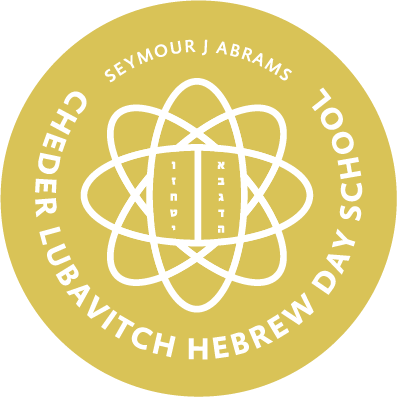| ב"ה |  | Seymour J. Abrams Cheder Lubavitch Hebrew Day School | | | Candle Lighting Times for Skokie: | | | Message from the Dean | | | | This week, on the 24th of Tevet, we mark the yahrtzeit of the Alter Rebbe, Rabbi Schneur Zalman of Liadi, founder of the Chabad movement. The Alter Rebbe was fleeing the invading French armies of Napoleon Bonaparte, when he succumbed to the harsh Russian winter. Many Jewish leaders at the time sided with Napoleon in his war against the Russian Empire, believing that the French enlightenment would bring improved living conditions for the Jews of Russia. The Alter Rebbe, however, stood firm in his position that enlightenment would be the catalyst of assimilation, and he threw his wholehearted support behind the Tsar. Thus, he was forced to flee as the French army approached. The battle for the survival of the Jewish spirit has been ongoing for centuries. Going back to when our ancestors were enslaved in Egypt, our sages teach that the Exodus came about due to the merit of the Jewish people not losing their identity. They maintained their Jewish names, language, and clothing. Despite having sunken to the lowest levels of impurity in Egypt, they still stood out as G-d's chosen people. Today too, as antisemitism continues to rear its ugly head, we must remember that the survival of the Jewish people will not come as a result of us hiding our Jewish identities. On the contrary, the prouder we stand as Jews, and the more visible we make our Jewishness, the stronger we become as a people. And a strong nation cannot be diluted or assimilated into anything else. That is the true meaning of Am Yisrael Chai: the Jewish nation will endure all that is thrown at us, and we will overcome! Shabbat shalom, | | | | |  | Parshah in a Nutshell |
Parshat Shemot The name of the Parshah, "Shemot," means "Names" and it is found in Exodus 1:1 - 6:1. The children of Israel multiply in Egypt. Threatened by their growing numbers, Pharaoh enslaves them and orders the Hebrew midwives, Shifrah and Puah, to kill all male babies at birth. When they do not comply, he commands his people to cast the Hebrew babies into the Nile. A child is born to Yocheved, the daughter of Levi, and her husband, Amram, and placed in a basket on the river, while the baby's sister, Miriam, stands watch from afar. Pharaoh's daughter discovers the boy, raises him as her son, and names him Moses. As a young man, Moses leaves the palace and discovers the hardship of his brethren. He sees an Egyptian beating a Hebrew, and kills the Egyptian. The next day he sees two Jews fighting; when he admonishes them, they reveal his deed of the previous day, and Moses is forced to flee to Midian. There he rescues Jethro's daughters, marries one of them ( Tzipporah), and becomes a shepherd of his father-in-law's flocks. G‑d appears to Moses in a burning bush at the foot of Mount Sinai, and instructs him to go to Pharaoh and demand: "Let My people go, so that they may serve Me." Moses' brother, Aaron, is appointed to serve as his spokesman. In Egypt, Moses and Aaron assemble the elders of Israel to tell them that the time of their redemption has come. The people believe; but Pharaoh refuses to let them go, and even intensifies the suffering of Israel. Moses returns to G‑d to protest: " Why have You done evil to this people?" G‑d promises that the redemption is close at hand. Learn: Shemot in Depth
Browse: Shemot Parshah Columnists
Prep: Devar Torah Q&A for Shemot
Read: Haftarah in a Nutshell
Play: Shemot Parshah Quiz | | | | | 5201 West Howard Street, Skokie 847-675-6777 | |


No comments:
Post a Comment